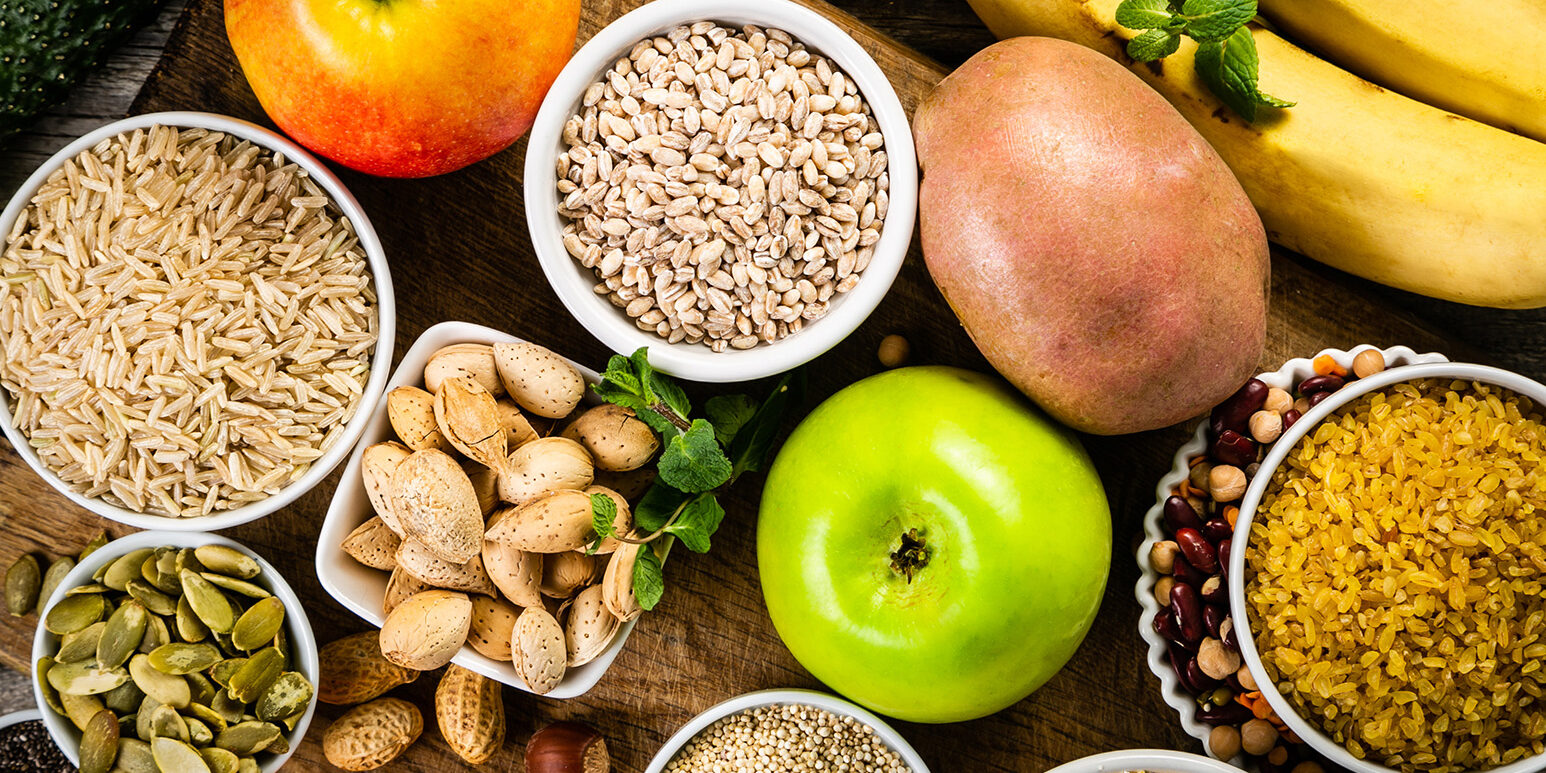By Erin Caraher, RDN, CDN
Carbohydrates are an essential macro-nutrient that is found in a variety of foods. It is important to know that quality matters, especially with this food group. Carbohydrates tend to get lumped into one category, but there are many different types of foods it includes. Fruit, beans, dairy, whole grains (bread, pasta, rice) and starchy vegetables contain mostly carbohydrates. Non-starchy vegetables are also carbohydrates, but they contain a smaller amount. These healthy foods should not be viewed the same way as processed carbohydrates such as cake, cookies, candy, chips, white bread, pasta and rice.
When you compare these two examples, they have very different nutrition profiles:
- 1 apple: 77 calories, 21 grams of carbs (15 grams of natural sugar, 4 grams of fiber)
Apples are also loaded with vitamins, mineral, antioxidants and phytonutrients. - 1 piece of chocolate cake: 424 calories, 58 grams of carbs (44 grams of added sugar, and no fiber)
According to some popular fad diets, both foods are grouped into the same carbohydrate category “sugar”. I often hear that patients are not consuming fruits because they are too high in sugar. It’s frustrating as a registered dietitian to see people missing out on this nutritious food source. High quality sources of carbohydrates act very differently in your body compared to processed/refined sources.
Whole grains, fruit, vegetables and beans have fiber in them, which slows the rate of the sugar getting into your blood stream. Fiber also promotes satiety and is good for your digestive system. Processed/refined carbs have been stripped of their fiber content. This causes your blood sugar to spike, and then shortly after, your blood sugar crashes. This ultimately makes you feel hungrier sooner, even if you recently consumed an abundance of calories.
In addition to fiber, the high-quality sources of carbohydrates are rich in vitamins, minerals, phytonutrients and antioxidants. They are also less processed. For example, a whole piece of fruit may contain 15 grams of sugar, but it comes from fructose, a natural source of sugar.
It’s important to realize that carbohydrates can be easy to over consume, even if you are choosing the healthier sources. They are not “free foods”. They do provide calories but can be incorporated into a healthy diet. It is important to have a balance of food groups when eating. For example, a snack could be a combination of an apple with peanut butter. This snack has healthy carbohydrates, fiber, vitamins/minerals, antioxidants, protein and unsaturated fat.
When you have a carbohydrate, try to make sure you are pairing it with a protein and/or healthy fat. Embrace eating whole food and minimize processed food, but do not let fad diets cause you fear one specific nutrient or food group.
Erin Caraher is a registered dietitian nutritionist who is works with Bariatric and Medical Weight Management patients. She helps patients achieve their health and weight loss goals.

